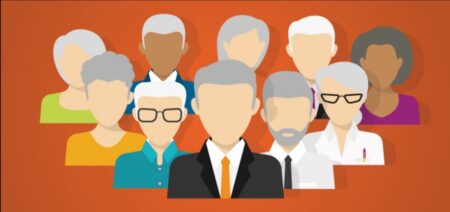HAVE you ever been overlooked for a job for seemingly no reason? Been ignored or talked over by medical professionals? Has someone else assumed you’re incapable of performing a simple task?
You may have been a victim of ageism.
You’d be joining one-in-four Australians over the age of 50 who have been affected by ageism in the last year.
Ageism is far reaching and can impact older people socially, financially and medically, yet it doesn’t get addressed nearly as often as it should.
New research commissioned by EveryAGE Counts, a campaign tackling ageism, polled older Australians on their experiences and perspectives of ageism.
What makes this research different from other research, which often relegates everyone to the vague ‘older Australian’ category, it breaks up responses by age categories.
By breaking up respondents into decade groups we can see how ageism affects people differently as they continue to age.
People in their 50s and 60s think the workplace is the most important setting to address ageism in. Twenty-five per cent of those polled have had job applications rejected due to their age and 25 per cent have been made to feel they are too old for their work.
But as people age, these concerns change.
People 90 and over are less concerned with the workplace than they are with healthcare. 20 per cent of people aged 90 and over have been denied health services because of their age. Twenty-seven per cent report that healthcare workers talk to their companion or carer rather than to them.
Just these two areas paint a picture of how serious ageism can be.
What good is it to encourage pensioners to work when those who haven’t even reached pension age are struggling to gain and maintain employment to support themselves financially?
We know that older Australians are more likely to require health services than any other age group, so why is getting much needed treatment harder the older you get?
Seven-in-ten older Australians believe ageism is a serious problem.
They agree that not enough is being done to address it in Australia and would support a government campaign to raise awareness about ageism and its effects.
It’s time for action.
